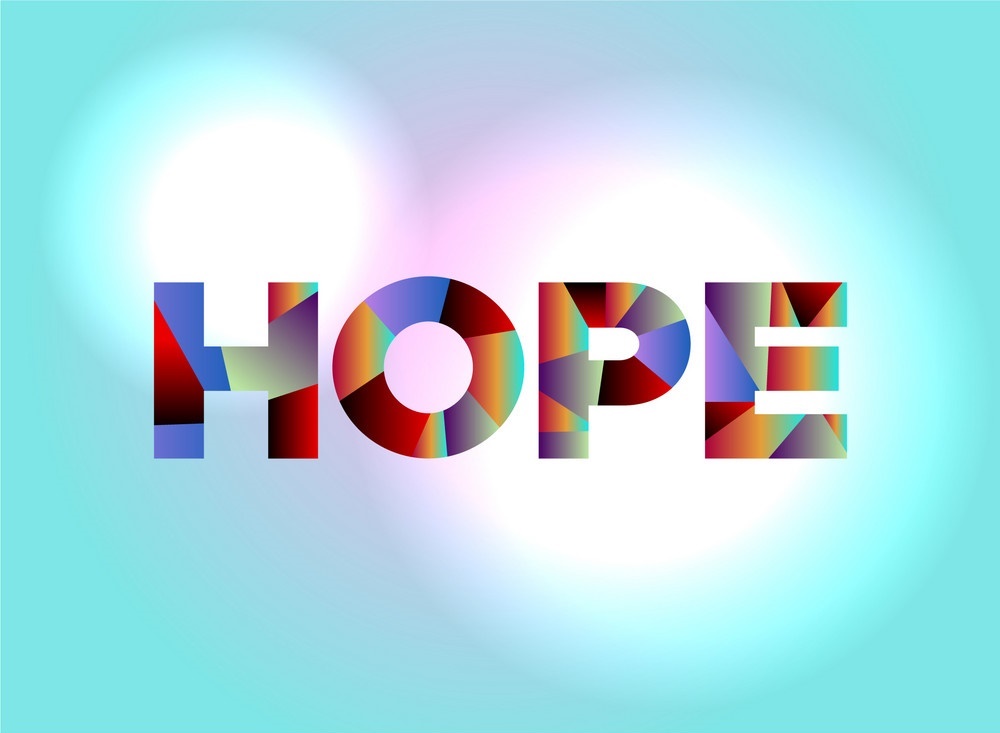Overcoming Lockdown Series - Hope, education's most important advocate

Writing in the wake of half a school term spent in lockdown, with most learning taking place online (...again), it is hard to put into words the feelings that staff, pupils and parents are experiencing at the moment. Witnessing the impact of prolonged school closure on both the children we teach and the staff we lead has been sobering to say the least and, with another potential period of closure for at least some pupils stretching out before us, it is tempting to give way to frustration, bandwidth-bashing and even bouts of Luddism!
However, in the midst of all the distress, confusion, inconvenience and, indeed, profound hardship which many involved in education - especially families from disadvantaged backgrounds - will be experiencing, there has never been a more important time to pursue one of the most elusive and yet powerful attitudes of heart and mind, and one which Desmond Tutu, the South African theologian and long-serving anti-Apartheid activist, defines as ’being able to see that there is light despite all of the darkness’. That is, hope. For the children we serve, for the sector and for the future of our education system. There is a significant wall of darkness looming over many children and teachers at the moment, with fears about the education gap between rich and poor, holes in learning, financial worries, and the more visceral consequences of Covid such as the loss of loved ones. But perhaps there is the potential for educators to draw some truly hopeful things from the past year.
Despite the monumental challenges presented by the pandemic - and these must not be underestimated - in many ways, it has acted as a significant catalyst for change in the sector, even in the space of a few months. Some fundamental questions have been and continue to be raised as a result of it by parents, teachers, school leadership and governments. Questions about exams, their purpose and their efficacy; the role of teachers and the importance of good relationships with pupils; the role of technology in the learning process; and the correlation between academic, hard skills - some of which many pupils will have gaps in as a result of the past year - and success and fulfilment in later life. These questions have sparked a significant shift, the most obvious being the extensive and effective use of interactive technology, seeing pupils and teachers upskilled in the most extraordinary ways. But there have also been more intangible effects. Emphasis has been placed on family and togetherness and how important relationships are in learning, and countless children have developed significant independence, resilience and flexibility of mind through their having to work in such a different way for such a long time. Some educators and commentators have argued that an effective curriculum should focus on two fundamental pillars - technology and wellbeing - and the pandemic has shone a spotlight on both. Therefore, looking at it from the angle of the shorter term change caused by the pandemic, there is, perhaps, much to be hopeful about.
In the long term too, as the impact of Covid on children becomes evident over the course of the next few years, it will perhaps serve to draw the focus away from the historically British emphasis on academic hard skills to a broader emphasis on what the modern world of work requires. Ever since the Victorian era, British schools have seen ‘hard’ skills - teachable and measurable abilities such as literary or mathematical skills - as the ultimate objective. They hold the most societal capital from early years right through our entire education system. However, there is a significant mismatch now between this model and what the modern world of work requires. Soft skills and attitudes are now more important than ever in the workplace, with far more emphasis placed on knowledge management over knowledge acquisition, interaction with people from a diverse range of backgrounds and employees increasingly needing multidisciplinary skills. As Tony Wagner posited, ‘The world no longer cares what you know, but what you can do with what you know.’ An often-cited analogy is that of the London taxi drivers ‘Knowledge’ which, with the invention of accurate GPS technology, is arguably completely useless now. And that is just the present. According to Sir Anthony Seldon, we find ourselves in the ‘Fourth Education Revolution’ which necessitates our educational offering being guided by the future. The job market is crying out for change - we need to help develop more employable young people with a broader and more holistic range of skills, and the pandemic could be the spark which ignites the fire.
However, we also need to ensure that the job market is not the loudest voice in the room. The true purpose of education is to help young people learn to live life to the full - this encompasses everything. While future job prospects are hugely important and are often very much aligned with personal fulfilment, they comprise merely a piece of the puzzle, not the image the completed puzzle shows and thus the ultimate purpose of the enterprise. Imagine if our education system turned out young adults who were personally fulfilled and ready to enter the world of adulthood - whatever shape that might take - pursuing wellbeing, not just for themselves but for others as well, both in their family lives, friendships and work lives. In our experience of prep and senior school education, parents are increasingly wanting character and wellbeing education to be an explicit part of our offering; it is no longer about just ensuring strong pastoral systems in the background, but about character education being front and centre. As one parent recently commented, ‘I’m not interested in my son’s academic results when he leaves; I am much more interested in who he is.’
For us, COVID has sharpened our focus on what really matters in education and out of its darkness we have hope for a bright future. If we believe that education is ultimately about living what one of our governors calls ‘a flourishing life’, then a model which incorporates academic skills into a more foundational, fundamental and holistic framework is not just a good idea, it is crucial. We are looking long and hard at our curriculum as a result, and we need to work together as a sector to lead national, and even global, education into placing as much emphasis on character as on academic success.
Jack Champness, Deputy Head Academic at Monkton Prep
(with contributions from Catherine Winchcombe, Head of Prep and Anna Cooke, Deputy Head Pastoral)

















.jpeg&command_2=resize&height_2=85)

.png&command_2=resize&height_2=85)
